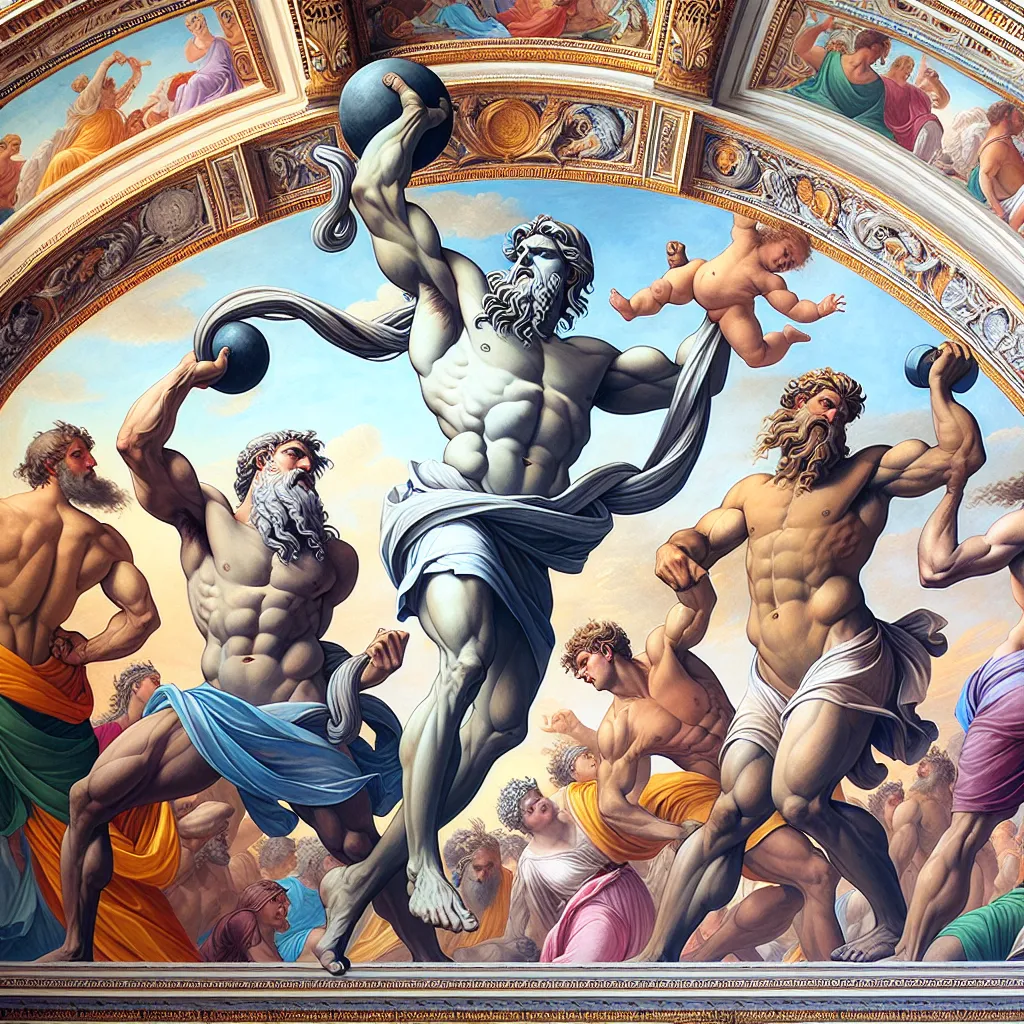
The Brotherhood of Olympus
In the ancient world of Greek mythology, the gods were known for their immense power, wisdom, and unparalleled beauty. However, in this unique retelling, the pantheon is exclusively male, and the divine realm is filled with an appreciation for the male form, strength, and camaraderie.
High atop Mount Olympus, the home of the gods, Zeus, the king of the gods, reigned supreme. His muscular frame was a testament to his strength and authority. His biceps bulged with every movement, and his chest was broad and powerful. Zeus was not only revered for his leadership but also admired for his physical prowess.
One day, Zeus decided to host a grand celebration in honor of the gods. He invited all the male deities to partake in a feast that would showcase their strength and unity. The gods gathered in the grand hall, their bodies glistening with divine energy. The atmosphere was filled with admiration and respect for each other's physiques.
Poseidon, the god of the sea, arrived with his trident in hand. His body was sculpted by the waves, with muscles that rippled like the ocean's currents. His shoulders were broad, and his abs were chiseled, reflecting the power of the seas he commanded. As he entered the hall, he exchanged a knowing nod with Zeus, acknowledging their shared appreciation for strength and masculinity.
Ares, the god of war, was next to arrive. His body was a masterpiece of muscle and sinew, honed by countless battles. His biceps were like boulders, and his legs were pillars of strength. Ares exuded a raw, primal energy that captivated everyone in the room. He flexed his muscles, showcasing the results of his relentless training and dedication to physical perfection.
Apollo, the god of the sun and music, entered with a radiant glow. His body was lean and defined, with muscles that seemed to shimmer in the light. His arms were strong from playing the lyre, and his legs were powerful from running across the heavens. Apollo's presence was a reminder that beauty and strength could coexist harmoniously.
Hermes, the messenger god, arrived with a playful grin. His body was agile and athletic, with muscles that were built for speed and endurance. His calves were particularly impressive, a testament to his ability to traverse the realms with ease. Hermes' charm and wit added a lively energy to the gathering.
As the gods feasted and celebrated, they shared stories of their exploits and achievements. The air was filled with laughter and camaraderie, as they admired each other's physiques and discussed their training regimens. The gods reveled in their shared appreciation for the male form and the strength that defined them.
In the midst of the celebration, Hephaestus, the god of blacksmiths and craftsmen, unveiled a new creation. He had forged a set of enchanted weights that would enhance the muscles of those who used them. The gods eagerly took turns lifting the weights, feeling their muscles grow and strengthen with each repetition.
Zeus, ever the leader, decided to demonstrate the power of the enchanted weights. He lifted them with ease, his muscles swelling with divine energy. His biceps grew larger, his chest expanded, and his abs became even more defined. The other gods watched in awe, inspired by Zeus's display of strength and muscle growth.
As the night went on, the gods continued to celebrate their unity and appreciation for each other's physiques. They engaged in friendly competitions, testing their strength and endurance. The hall was filled with the sounds of laughter, encouragement, and admiration.
In this world of male gods, love and appreciation for the male form were paramount. The gods found joy in their shared experiences and the bonds they formed through their admiration for each other's strength and beauty. Their muscles were not just a symbol of their power, but a testament to their dedication and unity.
And so, the gods of Mount Olympus continued to celebrate their masculinity, their muscles growing stronger with each passing day. Their love for each other and their appreciation for the male form remained a cornerstone of their divine existence, a testament to the power and beauty of the male body in the realm of the gods.